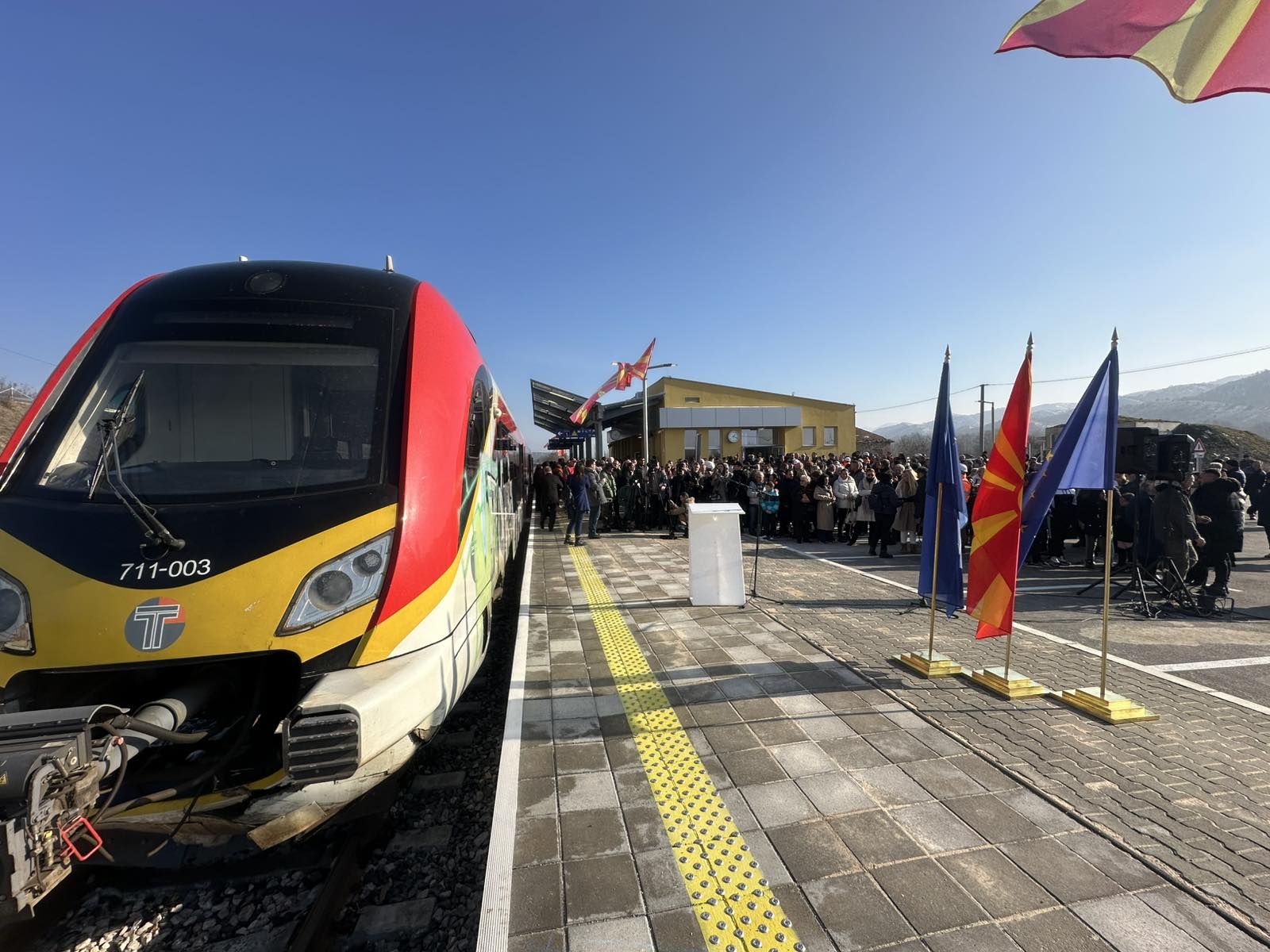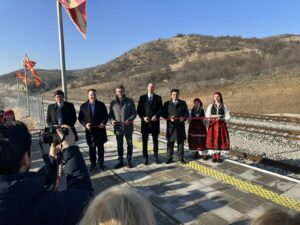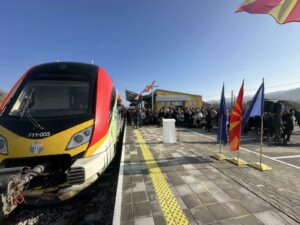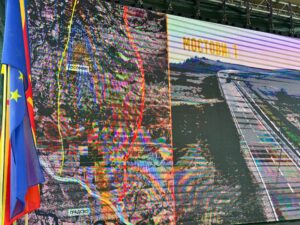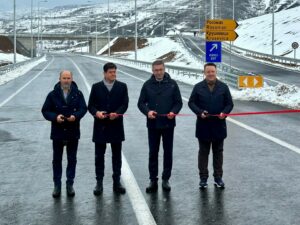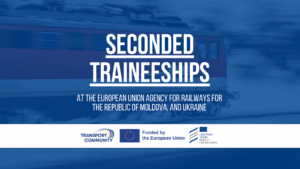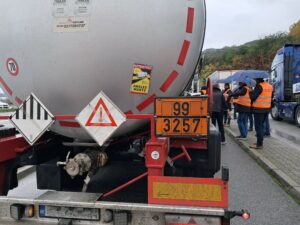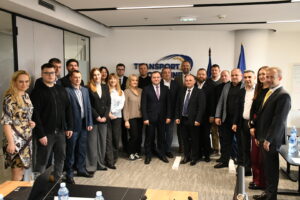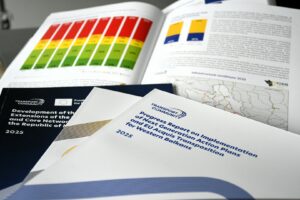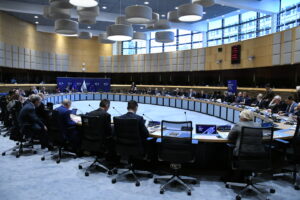SKOPJE – North Macedonia kicked off 2025 with opening of two major transport infrastructure projects. On 14 January, the Gradsko-Drenovo express road was inaugurated, while on 17 January, the reconstructed Kumanovo-Beljakovce rail section was officially opened.
These projects, supported by the European Union and delivered in collaboration with the Government of North Macedonia and international partners such as the EBRD, aim to improve travel safety, enhance regional connectivity, and foster economic growth, thus enhancing sustainability. Representatives of the Transport Community attended both ceremonies, highlighting their importance to the broader Western Balkans transport network.
The new express road between Gradsko and Drenovo has been designed to transform how people and goods move across the region. By restricting access to slow-moving vehicles, bicycles, and pedestrians, the road prioritises safety while enabling higher-speed travel. This not only reduces travel times but also strengthens ties between North Macedonia and neighbouring Greece, providing new opportunities for trade and economic development. Local communities along the route are set to benefit from cleaner air, quieter surroundings, and safer crossings as transit traffic is diverted from their roads.
A few days later, attention turned to the railways with the opening of the first completed segment of Corridor VIII, a key transport route that will connect Skopje and Sofia, linking the Adriatic and Black Seas. The newly reconstructed rail section between Kumanovo and Beljakovce offers passengers faster, more comfortable journeys and provides businesses with improved logistics for goods transport.
This segment is part of the Western Balkans–Eastern Mediterranean Corridor, one of nine components of the Trans-European Transport Network (TEN-T), which aims to strengthen connections between the Western Balkans and the European Union. By improving infrastructure along this corridor, the region is not only enhancing trade and mobility but also advancing economic integration with the EU.
The Western Balkans–Eastern Mediterranean Corridor links central European Member States with the ports of the Adriatic and East Mediterranean Seas via the Western Balkans. It runs through the eight EU Member States of Austria, Slovenia, Croatia, Hungary, Bulgaria, Greece, Cyprus and Italy, as well as the entire Western Balkans.

